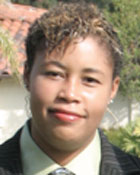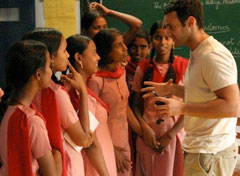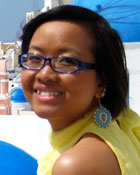 |
|||||||
| Undergraduate Academic Affairs Home | News | Make a Gift | UW Alumni | |||||||
|
October 2010 | Return to issue home
Where in the World are UW International Scholars? This year, the University of Washington set an institutional record for the number of undergraduate alumni selected for Fulbright Fellowships—11 in all. The Fulbright Fellowship program is the flagship international educational exchange program sponsored by the US government and is designed to increase mutual understanding between the people of the United States and the people of other countries. The program operates in more than 155 countries around the world. A number of scholarships and fellowships include international opportunities for their recipients—from the well-known Rhodes Scholarship to the lesser-known but still prestigious scholarships and fellowships like Institute for International Public Policy Fellowships and Samuel Huntington Award for Public Service. These awards not only recognize a student's accomplishments, but also are investments in a student’s future promise. The University’s recent success in Fulbright Fellows got us thinking about alumni who received a scholarship or fellowship that contained an international component. We contacted three such alums to learn about their experiences as award recipients and what they are doing now. When Allyssa Lamb, ’04, earned her bachelor's degrees in classics and Biblical and ancient near east studies, she had her future pretty well mapped out: earn a master’s in Egyptology from Oxford University on her Rhodes Scholarship, then on to a Ph.D. for a career in academia furthering the fields of classics or Egyptology. So how is she now considering practicing criminal law? As an undergraduate, Paul Javid, ’06, worked with renowned computer science professor Ed Lazowska on a system that enabled rural women involved in microfinance projects to keep records and complete transactions over mobile phones. Learn about Paul’s other work using technology to meet the needs of people in developing communities. Even though she already speaks English, Mandarin, Cantonese, Arabic and some Italian, Vi Nhan’s, ’08, day at the office is spent in a classroom learning Japanese for six hours a day, plus homework. As a new Foreign Service officer, Vi will be stationed in Osaka, Japan, in 2011 so she joins other Foreign Service officers learning additional languages on a Washington, D.C., campus and diligently prepares for her service abroad.
The Rhodes to Yale Law School "That interest in travel," says Allyssa, "and seeing and experiencing new things is part of what made me excited to go to Oxford in the first place." At Oxford, Allyssa learned to navigate an educational system unfamiliar to her in which master's students work one-on-one with their faculty adviser as well as traditions unlike any she’d encountered before—from wearing subfusc for taking exams to "trashing," post-exam celebrations that include showering exam-takers with confetti, glitter, flour, yogurt and octopi. "And I’m not making that up," says Allyssa. "It’s a world-class academic institution but at the same time it has all these quirks." Allyssa wrote her master’s thesis on images of magical practitioners in Egyptian, Greek and Latin literature, a topic of interest since her undergraduate work. While Allyssa's work centered on the ancient world, her friends were scholars with a global, contemporary focus, which helped her maintain her interest in politics and current world affairs. After Oxford, Allyssa began her doctorate program in classics at the University of Chicago. While she enjoyed the classes, professors and students, she began to question whether this was the path she wanted to travel after all. An unexpected interruption in her Ph.D. program required her to return to Redmond, Wash., to care for her mother and grandmother who were both ill. At home, she began to reflect on her future. She took a departure from antiquity and decided to channel her growing frustration with U.S. politics into "something more proactive" and applied to law schools. A visit to Yale Law School solidified her interest in the field and in that school. Now in her second year at Yale, Allyssa is keeping an open mind about the kind of law she may want to practice. A stint with the Innocence Project in New Orleans piqued an interest in wrongful convictions but she says she doesn’t "know if I want to be a proper lawyer." As for the radical switch in disciplines, her work as a classicist trained her well for the lawyerly need to research, analyze and pick apart arguments. That said, legal research and writing is quite different than academic writing and an area in which Allyssa continues to refine her skills. However, "one thing I have a leg up on everyone else is that I can read the Latin terms."
Realizing That Change Takes More Than Sweat Early on in his undergraduate studies, Paul "realized the value of being at a research university. You can find anyone doing anything. Even though my interest was somewhat nonstandard, I was able to find someone to help me dig into my interest." As an undergraduate, Paul worked with renowned computer science Professor Ed Lazowska and graduate student Tapan Parikh, on a system that enabled rural women involved in microfinance projects to keep records and complete transactions over mobile phones. Paul helped build the mobile phone application to facilitate this process and earned a Mary Gates Research Scholarship for his work in the project. Paul then applied that same technology to help businesses in India keep track of their sales force and manage a rural supply chain. He spent seven weeks in India with this project and later published the results and presented a paper about it at a research conference at the University of California Berkeley School of Information. After graduation, Paul was awarded the Samuel Huntington Award for Public Service to continue his commitment to using technology to meet the needs of people living in developing communities through Digital Study Hall, a program in India that improves education for children in slum and rural schools through teacher training. A stipend of $10,000, the Huntington award is given to only one or two graduating college seniors in the country, enabling them to pursue one year of public service anywhere in the world. The Huntington Award allowed Paul to focus on Digital Study Hall. The organization delivers teacher training content to rural schools via systems similar to Netflix and YouTube. Classes taught by exceptional grassroots teachers are recorded and distributed to the schools where teachers watch them with a facilitator and practice the teaching methods in the lesson. Paul spent two years in India, first in Bangalore and then he and the founder of Digital Study Hall were hired by Microsoft to re-establish a pilot project of it in Calcutta. "Microsoft was interested in understanding the role of technology in rural communities," says Paul, "and had a hunch that video could be a valuable means of communicating with such audiences." Paul worked with Microsoft and Digital Study Hall to help get quantifiable results of the work's effectiveness. They conducted a small study that showed strong preliminary results that teachers’ learning improved over time as a result of Digital Study Hall. The pedagogical methods the teachers learned changed the classroom from "boring and static to interesting and dynamic." And though their sample size wasn’t large enough to be statistically significant, student scores improved by 300%. Paul was responsible for the Calcutta work, finding an office, hiring and training employees. "You really felt like you were working on a start-up." When Paul needed more video content of teachers in classrooms he started a school for the kids in the neighboring slum. The project is ongoing and the school Paul started still exists in the form of an afternoon tutoring program that serves about 100 kids in the area. His experiences in India taught Paul that to make a scalable difference, "sweat isn’t enough. You need to be organized and strategic." This notion is reinforced for him as he finishes a dual master’s degree in business and public health at the University of California at Berkeley. "One of the reasons I’m focused now on entrepreneurship is to acquire contacts and resources so that, should I go back to a developing country one day to start something, I would be able to build something from the ground up."
'Nice to Meet You' in Six (or More) Languages These experiences laid the foundation for Vi’s belief that cultural commonalities are easier to uncover than points of division. As a sophomore, Vi was selected to be an Institute for International Public Policy (IIPP) fellow. As one of 20 IIPP fellows nationwide, Vi would spend the next few years preparing for international service through intensive summer institutes, study abroad to South Africa, and graduate school preparation in addition to completing dual majors in political science and international studies. The opportunities afforded to IIPP fellows over a five-year period could reach $100,000 in value. In addition to the IIPP fellowship, Vi spent a summer in Hong Kong learning Mandarin on a Critical Language Scholarship. Vi spent the first 12 years of her life in Vietnam speaking Cantonese at home. Being in Hong Kong, where Cantonese is spoken, "was the first time in my life where I lived in an area where my mother tongue was spoken. It was amazing to hear all these people speaking my language." After her summer in Hong Kong, Vi returned to the UW to complete her Honors thesis on media freedom in China. As she graduated, she was one of 20 students nationwide selected for the Rangel fellowship, which supported her graduate study at Johns Hopkins where Vi earned her master’s degree in international relations and international economics. Part of the Rangel fellowship entails a three-year commitment to the Foreign Service, a career to which she already aspired. Millions of Americans live abroad and hundreds of thousands travel internationally each year. According to the State Department, on any given workday in 2009, nearly 52,000 Americans were issued a passport and more than 22,000 people received a non-immigrant visa to visit the United States. Consular officers around the world serve these and other needs as well as represent the United States. After completing her Japanese training, Vi will move to Osaka, Japan, to serve as a consular officer. So, if you lose your passport between 2011-13 near Osaka, Japan, you may be helped by a fellow Husky. "I want to keep representing the United States and keep explaining to people what America is," says Vi of her future goals. "It’s really bringing it back full circle to my experience in Morocco. I’m looking forward to building relations with local citizens. In some cases, we are the first Americans they’ll see, so that’s a pretty big impact on their lives." When she completes her tour in Japan, Vi will move to another country on another tour. Every few tours will be in Washington, D.C. While she will be living in places far from the Northwest, Vi notes the connections she made with UW faculty and staff as well as her family in Seattle, and says "no matter where I am in the world, I’m rooted in Seattle." October 2010 | Return to issue home | |||||||
|
|||||||


